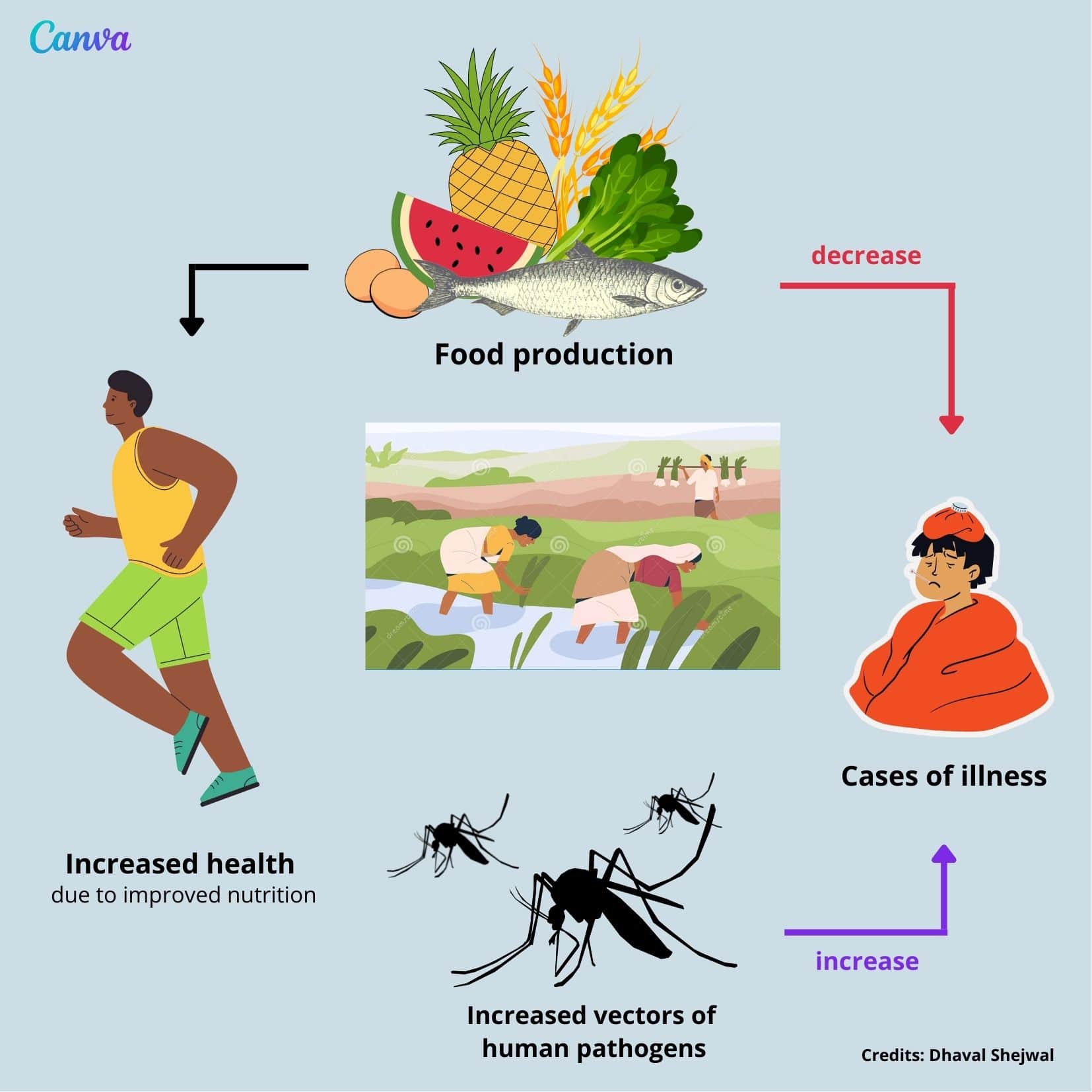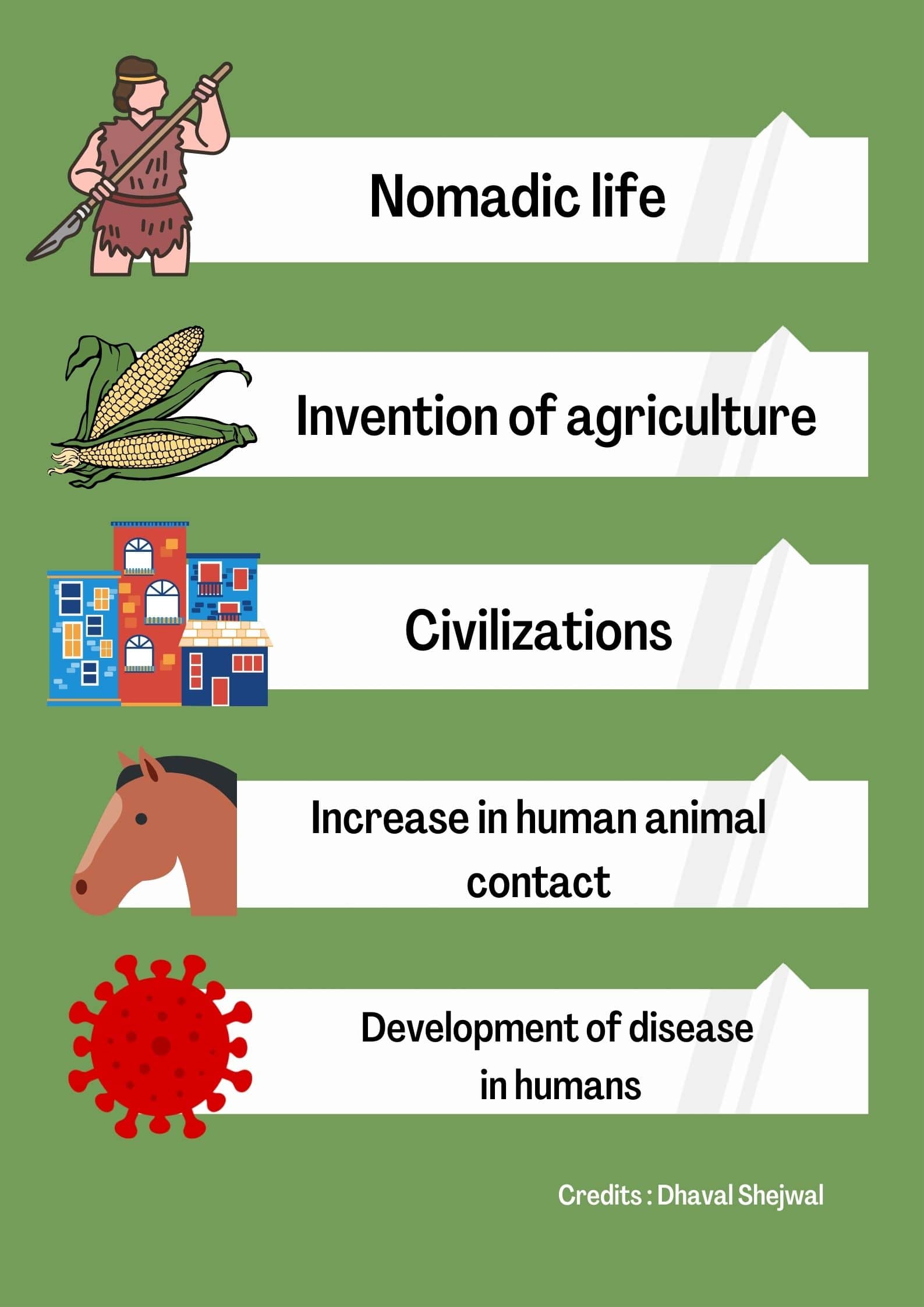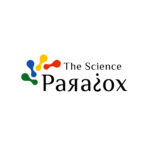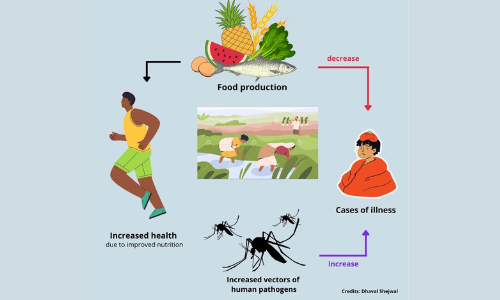Linking Agriculture to an increase in human diseases
You must have read about many health issues related to consuming non-vegetarian food. Obesity, heart risk, etc., and how it is bad for the environment. Still, I am sure many of you haven’t given up on consuming meat. This is my desperate attempt to try to convince you, again, but from a very different perspective and very relatable due to our recent traumatic pandemic experience. At the end of this article, I hope you will know, why the meat and dairy industry is adverse in so many ways.
Agriculture is the greatest human invention ever which has benefitted our civilization and contributed to the success of our survival. Ancient hunters and gatherers relied on naturally grown food and were living in a wild environment. Since the advent of agriculture, we started to settle down and build small communities. In nature, we find thousands of edible plant species but we only domesticated a small fraction of those, and today around half of the available habitable land on earth is dominated by these small fractions of plant species. Agriculture helped our civilization grow rapidly which resulted in the rapid transformation of the land. We are no longer living in the wild and no longer food insecure (technically :D, Food security is a different topic. Please read my series on it in previous seasons of this magazine. End of promo.). We often see agriculture as a boon for our civilization and look at how it helped us survive but often overlook how it has directly or indirectly contributed to complicating our lives. Loss of biodiversity, increase in human-animal contact (both domestic and wild), and increase in population and thus, density are direct consequences of the intensification of agriculture which increase the probability of disease transmission.
Covid-19 was (or is?) extremely transmissible but not lethal compared to many past pandemics. Do you think it would have affected our lives if it had come in the 18th century? I speculate that it would not have spread all over the world as it did now. As agriculture increased access to food, our civilization flourished and grew exponentially. It is no doubt that the population explosion is a direct consequence of the intensification of agriculture. Today, our population density is so high, that spread of a disease is very easy.

Did you know that some human diseases have a close affinity to diseases found in domestic animals? This is not a coincidence. Meat, dairy, and poultry are the biggest sectors of the agricultural industry occupying more space than food crops. For decades, we domesticated many animals like cows, goats, sheep, and chickens and they are now mass-produced for consumption. This has significantly increased human-animal contact which is a major source of infectious diseases or disease transfer from animals to humans.
Smallpox was (definitely was, eradicated in the late 20th century) one of the deadliest diseases in the history of humanity. It is estimated that more than 300 million died from it since its existence. It is a variola virus and is related to rabbitpox, cowpox, monkeypox, and swinepox. The closest relative of smallpox is camelpox, which causes severe disease in young camels. Thus, it is speculated that it came to humans during the domestication of camels.
Malaria is a mosquito-borne infectious disease that sometimes is lethal. It is caused by a virus belonging genus Plasmodium. Taxonomic study reveals that the emergence of this parasite in human civilization corresponds to the time of domestication of poultry. Pertussis, also commonly called whooping cough, is a bacterial disease belonging to the genus Bordetella. It not only infects humans but also can infect domestic sheep, dogs, horses, pigs, cats, and rabbits.

Agriculture intensification has directly affected us by introducing diseases via animal contact and indirectly facilitated their prevalence in our civilization through the increase in population density and loss of biodiversity. What can we do about it? Looking at the evidence, it’s certain that we have to reduce human-animal contact and thus, need to reduce animal and animal product consumption. Domestic animals are a conduit for the prevalence of many diseases. Considering this animal-human disease transmission angle with environmental impact and negative health impacts of a non-vegetarian diet, there is overwhelming evidence for disadvantages of consuming animal and animal products. I hope my desperate attempt of promoting vegetarianism (not even asking you to become a vegan!) has some impact.
REFERENCES:
- Pearce-Duvet, J. M. C. (2006). The origin of human pathogens: evaluating the role of agriculture and domestic animals in the evolution of human disease. Biological Reviews, 81(3), 369–382. https://doi.org/10.1017/S1464793106007020
- Rohr, J. R., Barrett, C. B., Civitello, D. J., Craft, M. E., Delius, B., DeLeo, G. A., Hudson, P. J., Jouanard, N., Nguyen, K. H., Ostfeld, R. S., Remais, J. V., Riveau, G., Sokolow, S. H., & Tilman, D. (2019). Emerging human infectious diseases and the links to global food production. Nature Sustainability 2019 2:6, 2(6), 445–456. https://doi.org/10.1038/s41893-019-0293-3
. . .
Writer
Rohit Pawar
Editor
Anushri Modak
Illustrator
Dhaval Shejwal

